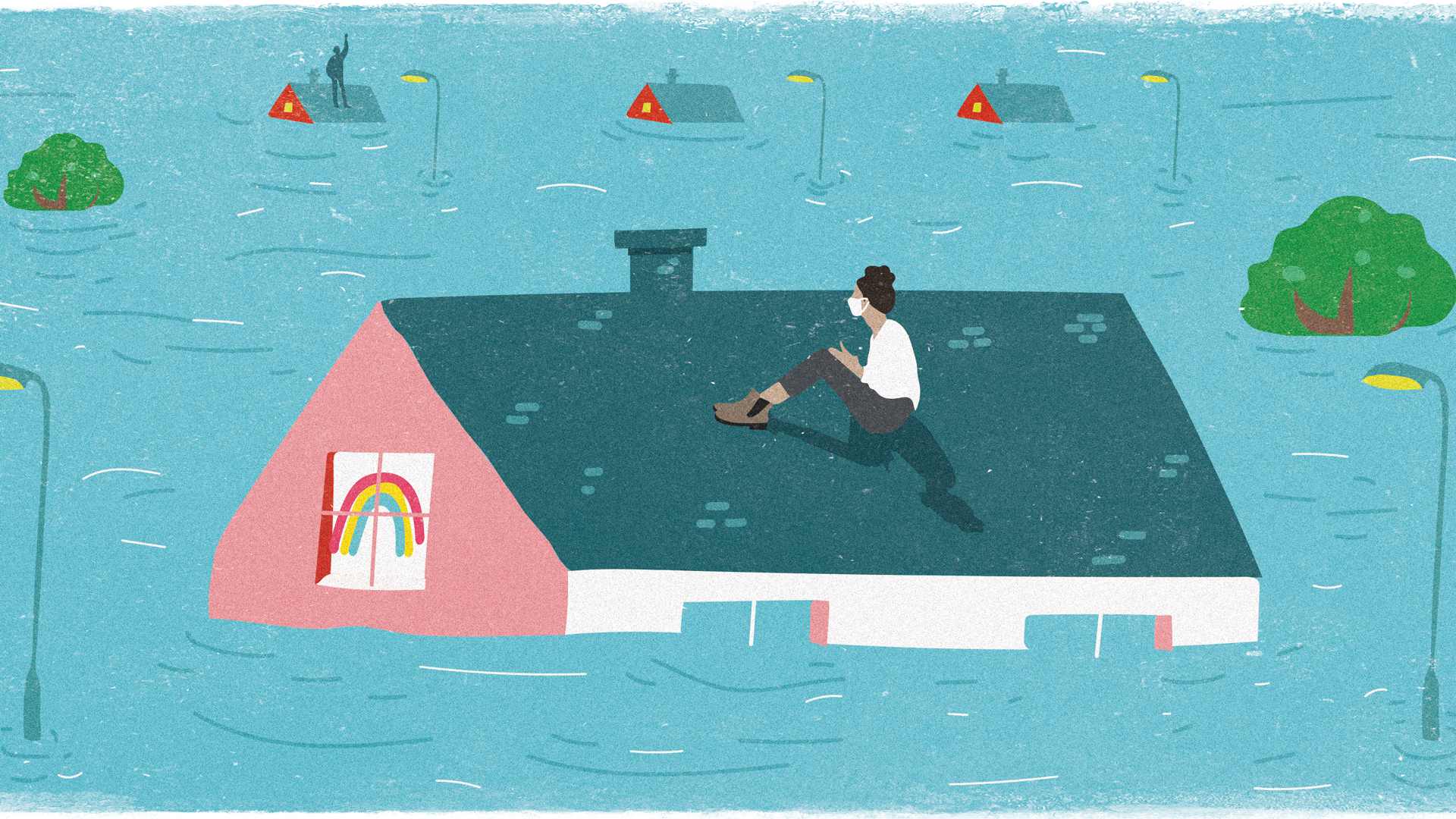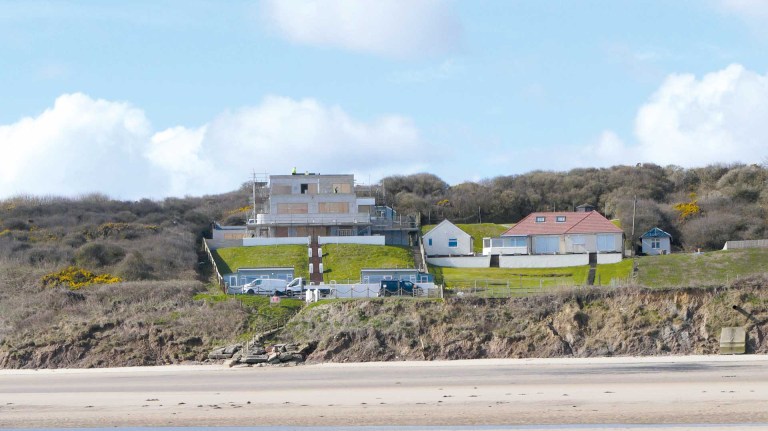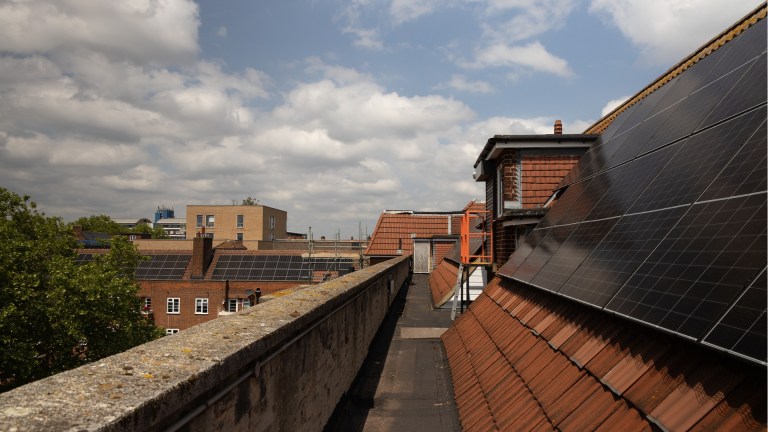The carbon-heavy companies Mann calls “inactivists” have changed tactic from outright climate change denial to encouraging focus on individual actions and behaviours. Their goal is to thwart the systemic action that could eat into their profits.
The same powers that downplay the climate emergency (“the conservative media, the fossil fuel industry, who help spread misinformation and disinformation”) found it “convenient” to deny the threat of the Covid-19 crisis, Mann explains.
“Those same allies have, for decades, been attacking the science behind and trying to defeat efforts to act on climate change because it’s inconvenient to their own short-term profits.”
The pandemic gave us insight into just how dangerous that is, the climatologist adds, because it was a crisis “played out on an accelerated timescale”.
Covid awakened us to the alarm around pandemics. But hey, we have other alarms that are going off.
“Climate change denial is played out over decades, but this played out over less than a year,” he says.
“People were almost able to see in real time how misinformation spreads and how deadly it is. Maybe that provides us an opportunity to have a more constructive conversation about acting on the even greater crisis that we face.
Advertising helps fund Big Issue’s mission to end poverty
“Covid awakened us to the alarm around pandemics. But hey, we have these other alarms that are going off. It shows us clearly the need to act immediately and listen to what the science has to say. Before it’s too late.”
There are reasons to be optimistic, however.
“This is the most opportune moment we’ve had in years to finally see some meaningful action,” Mann says. “Individual actions are important. We should all do what we can in our everyday lives that decrease our environmental footprint. In so many cases they save us money, they make us healthier, they set a great example for other people.
“It would be foolish not to. That said, we need to hold corporate polluters accountable. The overwhelmingly largest carbon footprint is the fossil fuel industry.”
More than 70 per cent of the world’s carbon emissions can be linked back to just 100 companies, 2017 research by charity CDP showed.
Advertising helps fund Big Issue’s mission to end poverty
“The rest of the world tends to watch what happens in the US,” Mann continues. “Unfortunately, for the past four years we had a president who had done everything possible to disengage from international efforts to tackle the climate emergency, to alienate the rest of the world, including some of our most important partners like the UK.
“We still did make some progress in recent years [carbon emissions dropped seven per cent globally]. Most countries have come close to meeting their Paris Agreement obligations, which we do have to ratchet up if we’ve to have hope of keeping global warming under dangerous levels of more than two degrees Celsius.
“We’re seeing global carbon emissions flattened and they’ve actually come down this year. Some of that is due, of course, to social distancing and lockdown policies. But some of that is due to the steady transition from fossil fuels towards renewable energy that we’re seeing around the world. A whole bunch of things are coming together. We can’t be complacent, but I’m hopeful.”
Last month the Prime Minister Boris Johnson announced the Adaptation Action Coalition, an initiative which saw the UK, Egypt, Bangladesh, Malawi, the Netherlands, Saint Lucia and the UN join forces to provide on-the-ground support for vulnerable people affected by extreme weather.
But “adaptation” within the climate movement can be another smokescreen for shirking responsibility, Mann warns.
Advertising helps fund Big Issue’s mission to end poverty
“The impacts of climate change are already here. A certain amount of adaptation is absolutely necessary.
“That said, adaptation has been something that’s been used to deflect attention. We must solve this problem at its source, which is getting away from the burning of fossil fuels.”
The impacts of climate change will “very quickly” exceed our capacity for adapting as a species if we don’t act now, Mann warns. The best way to help the communities set to be worst hit is through regulation, policymaking and systemic action, which will decarbonise the world’s economy.
The same goes for technologies like carbon capture, he says, in which the UK government said it would invest £1bn. The technique, expensive and relatively untested, takes carbon emissions from the atmosphere and stores them underground. It’s filed under what Mann refers to as “non-solution solutions” in his book The New Climate War. It risks being “a ticket for polluters to continue business as usual,” he says, and is no match for the benefits of a transition to clean energy.
Ultimately we’ve got to hold the fossil fuel industry accountable and we need politicians who are willing to do so.
The real test of individual action is how effectively we can use our voices to push for change as one. That means voting out politicians who refuse to act and voting in those who will, as well as using whatever platform we have to make sure everyone knows: this isn’t an emergency of the future. It’s here now, and it’s putting vulnerable people more at risk.
“The Big Issue is a great example of that,” Mann says. “There’s an opportunity for those of us who are part of civil society, non-government organisations, media outlets, we all have a way of leveraging our individual voices for change.
Advertising helps fund Big Issue’s mission to end poverty
“But ultimately we’ve got to hold the fossil fuel industry accountable and we need politicians who are willing to do so.
“We have to recognise those tactics and the obstacles they’re throwing in our path and fight back against that if we are going to succeed in this battle.”
The Covid-19 crisis also raises fundamental questions about how we live sustainably on this planet, according to Mann.
“The fact that this microscopic virus can wreak havoc on the planet and civilisation the way coronavirus has done speaks to how vulnerable we are,” he says.
The New Climate War by Michael E Mann is out now (Scribe, £16.99)










